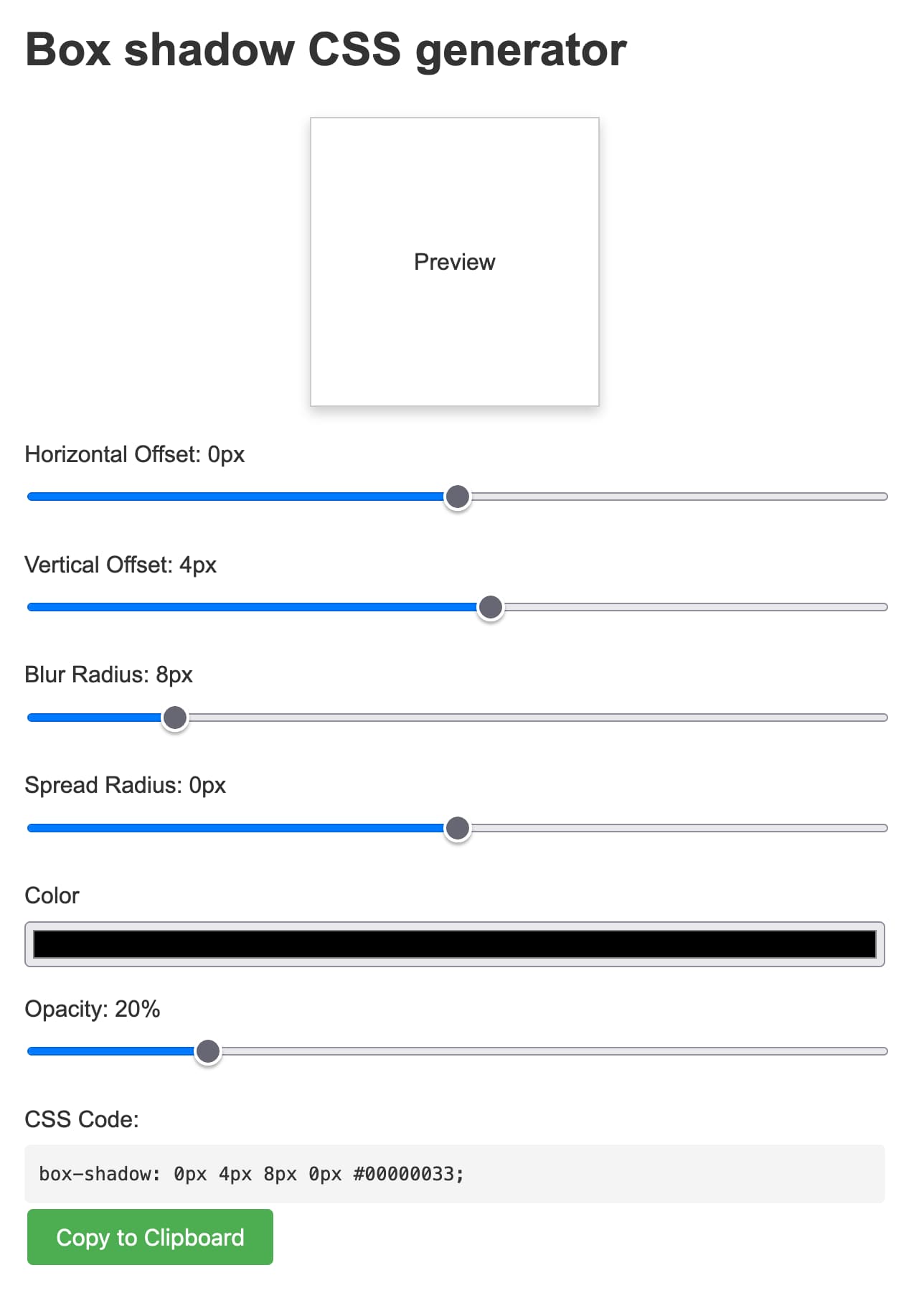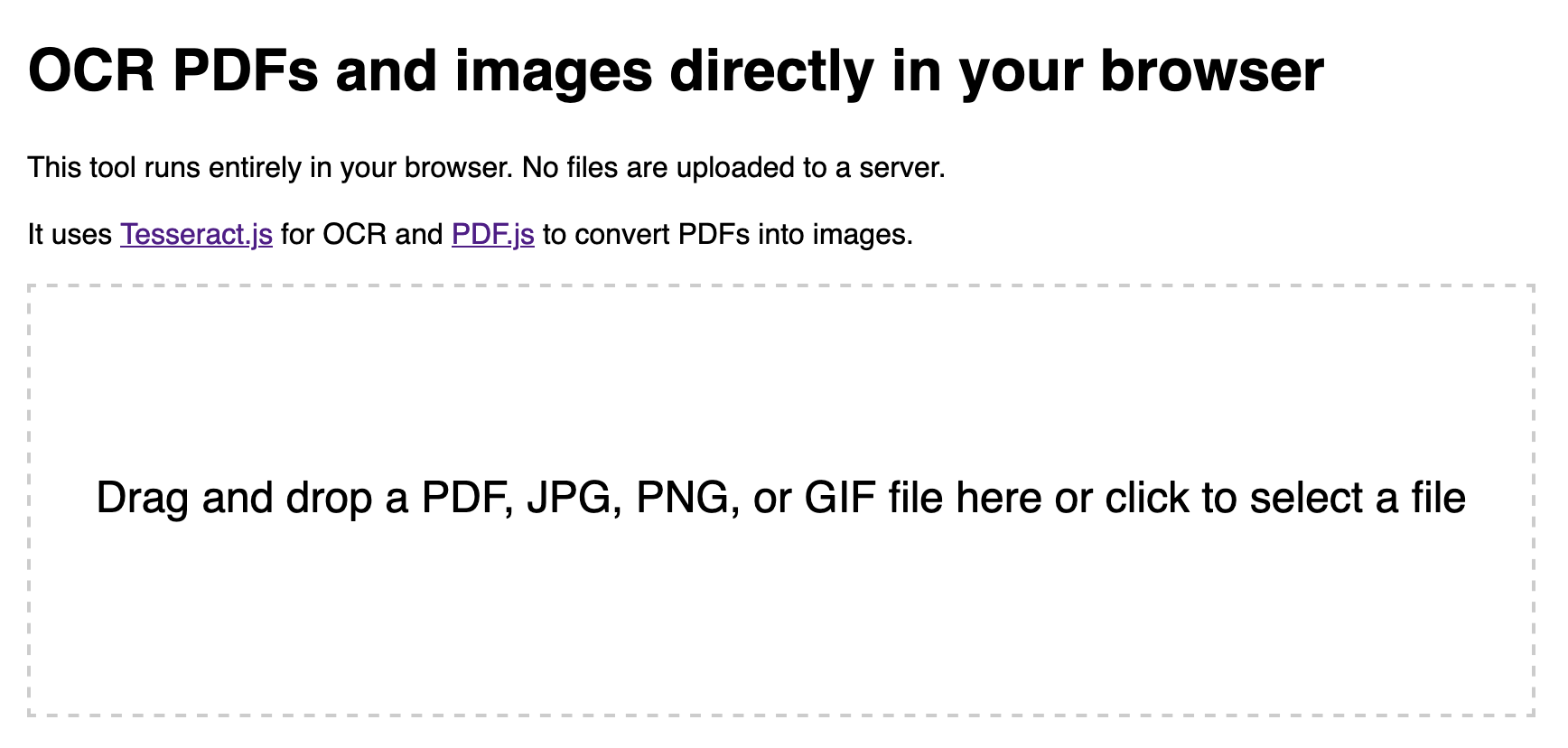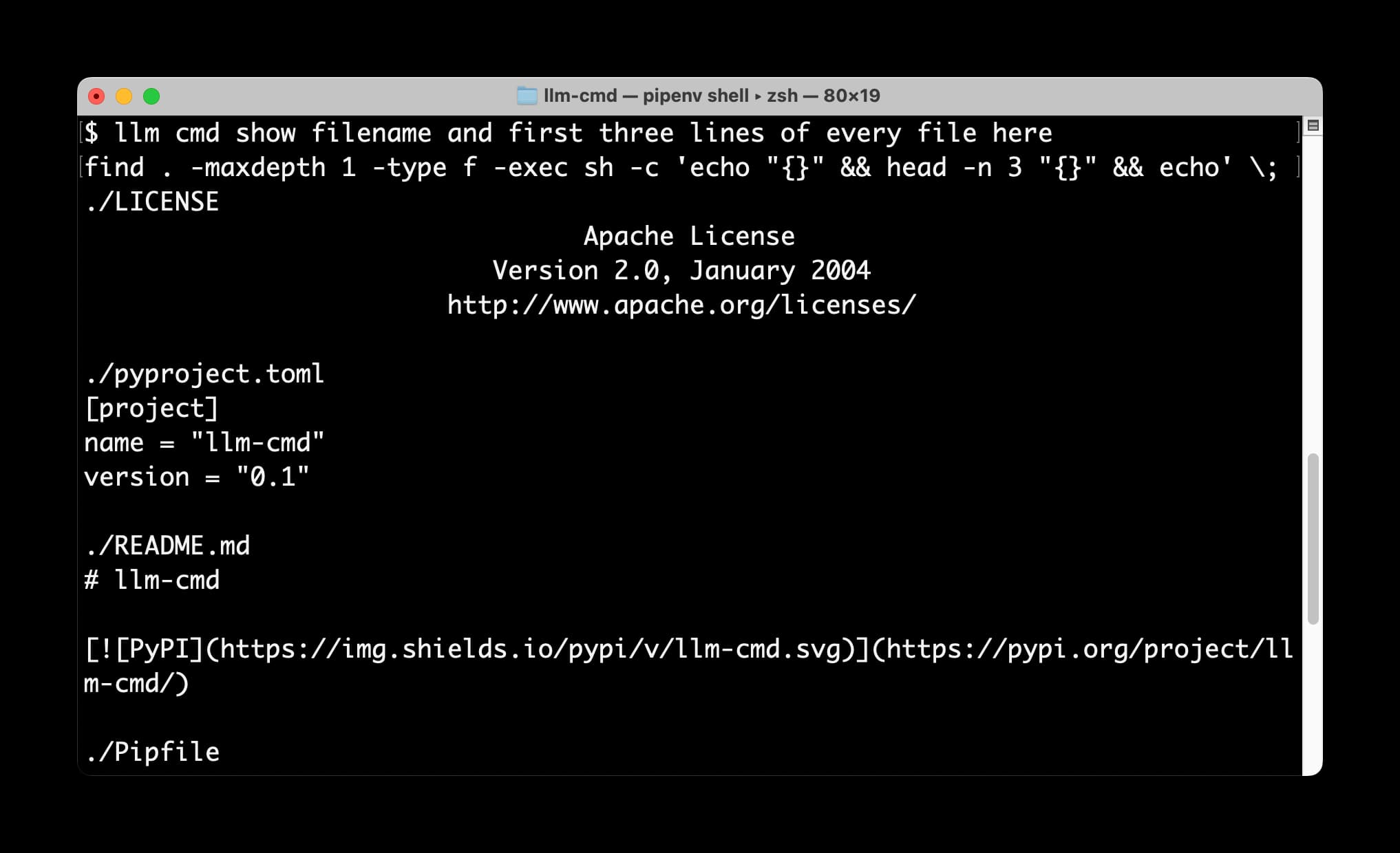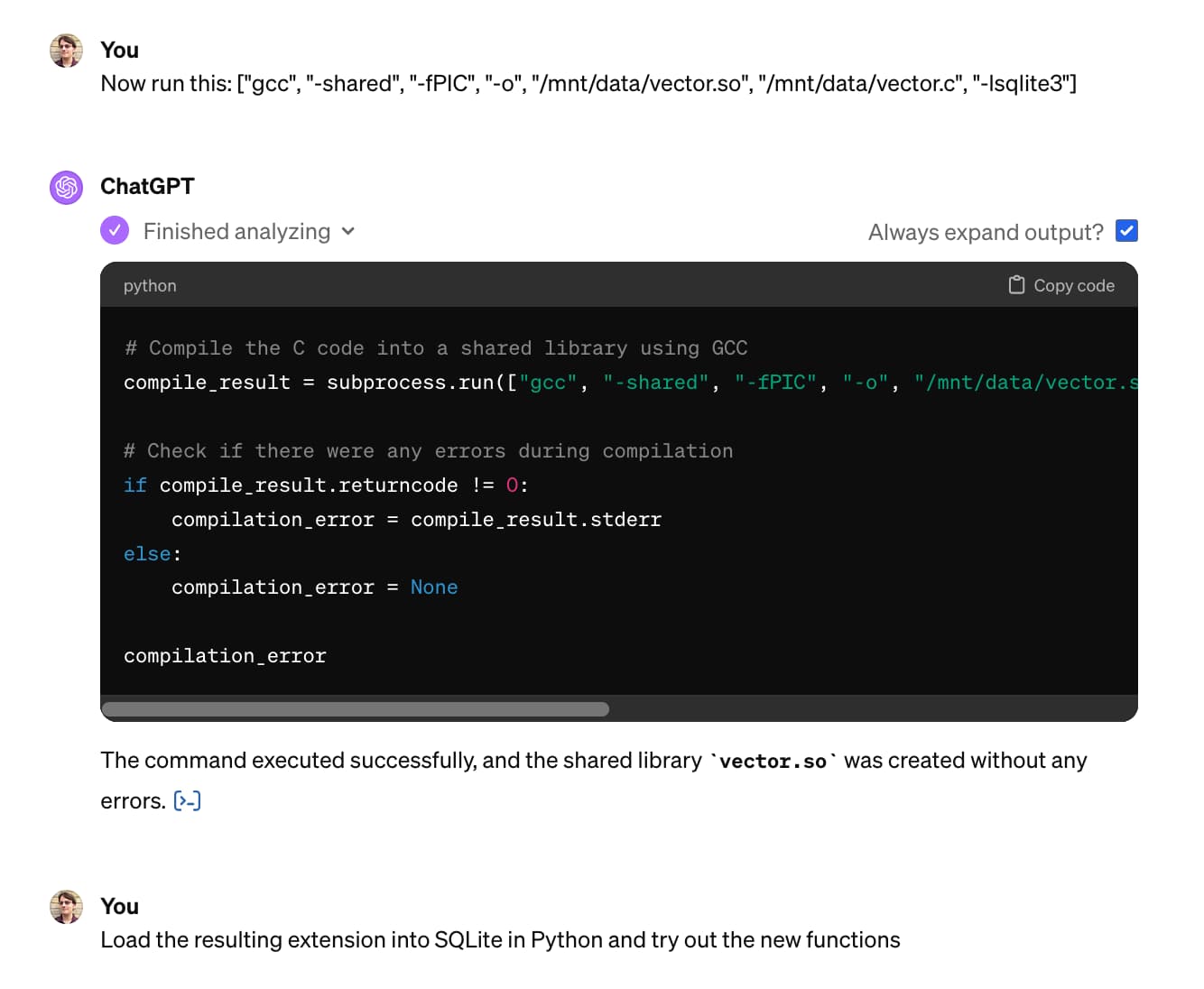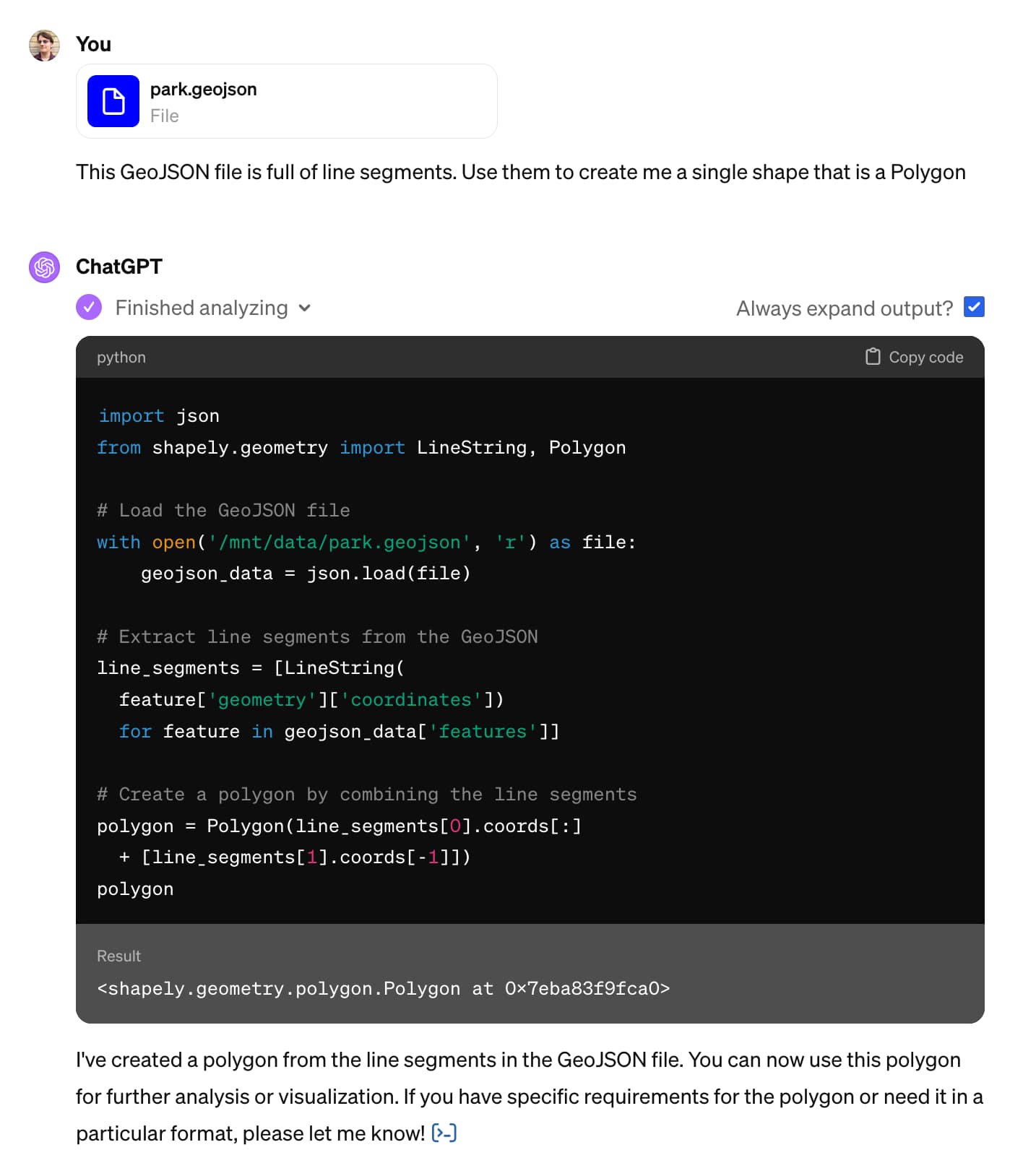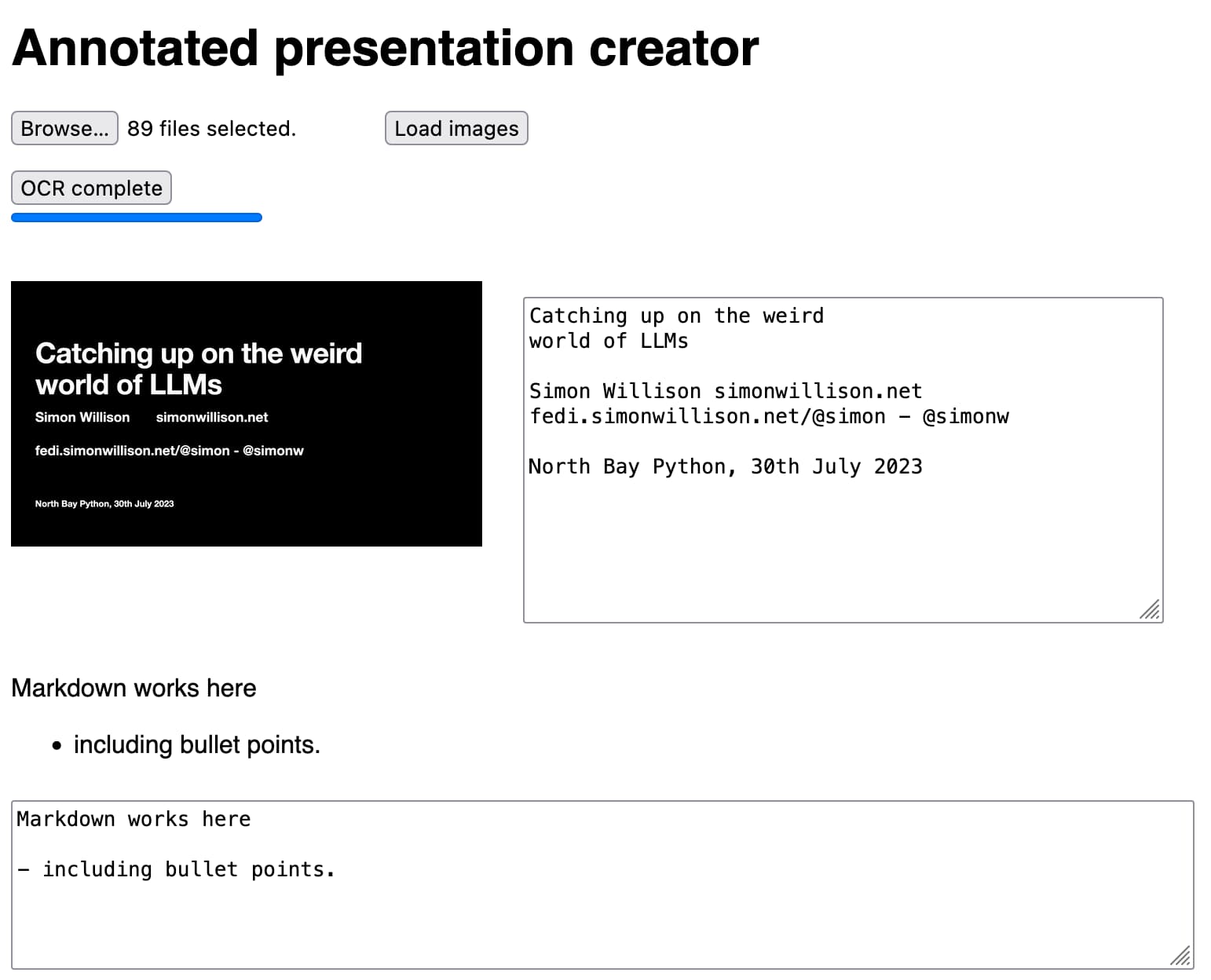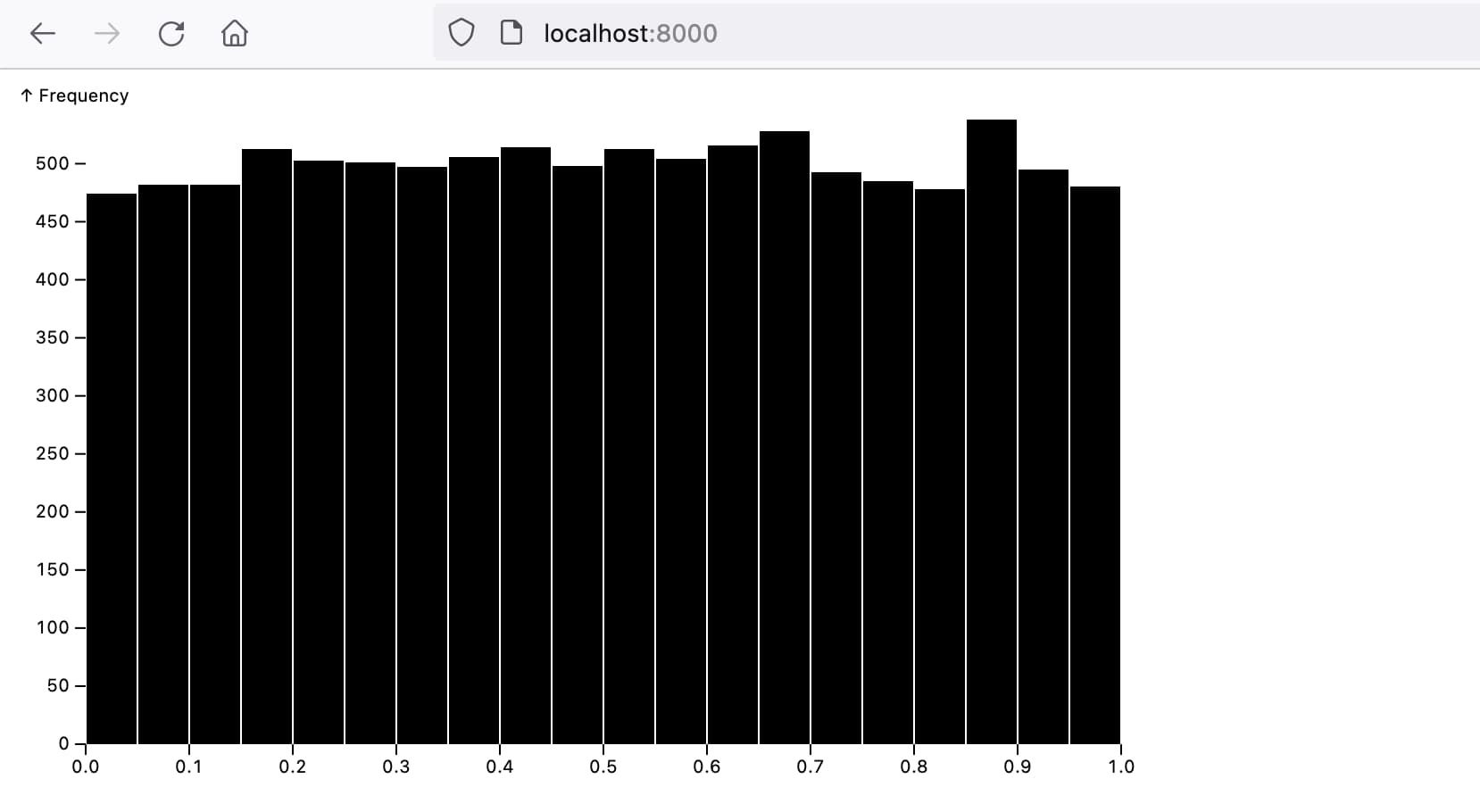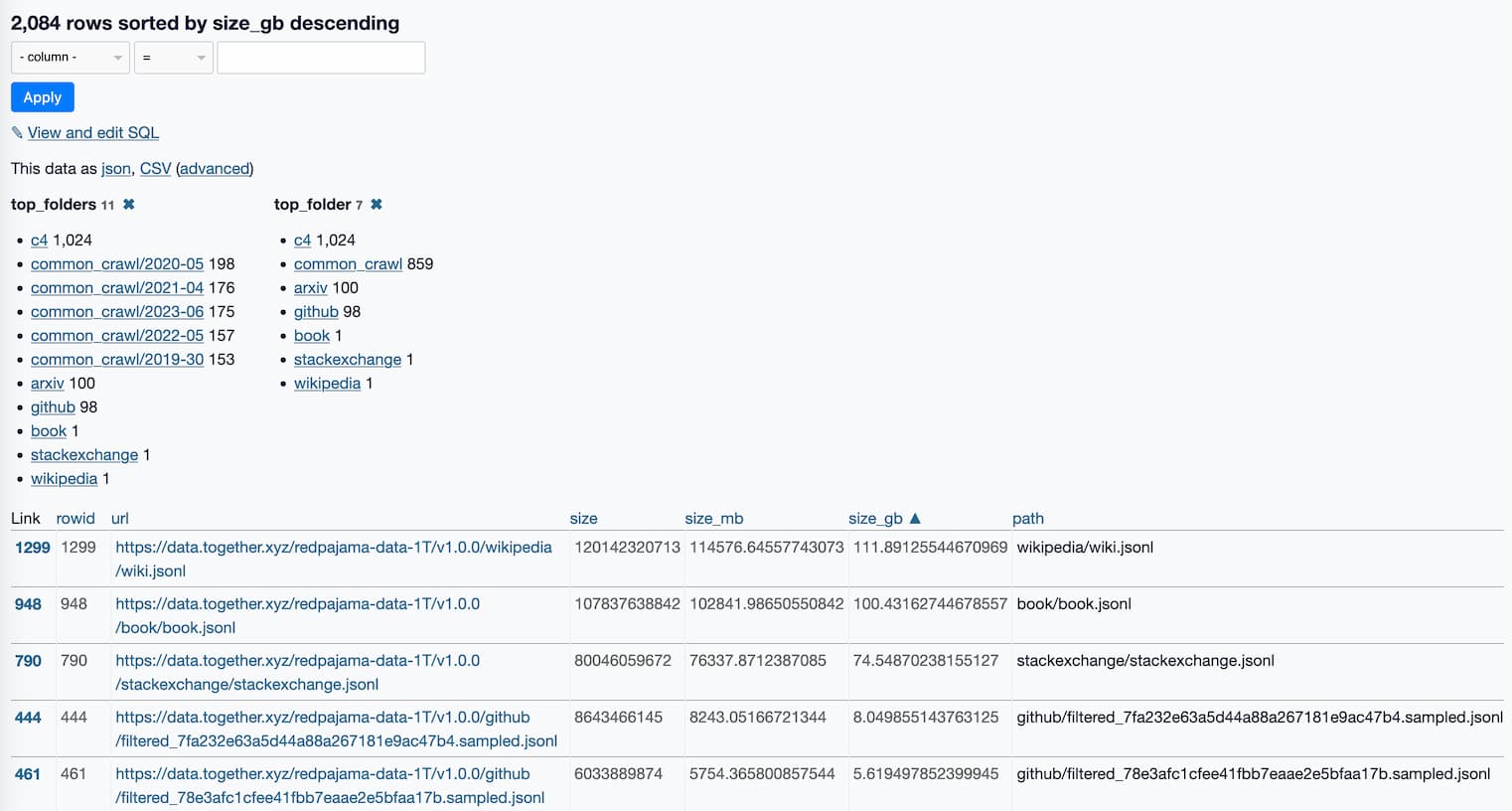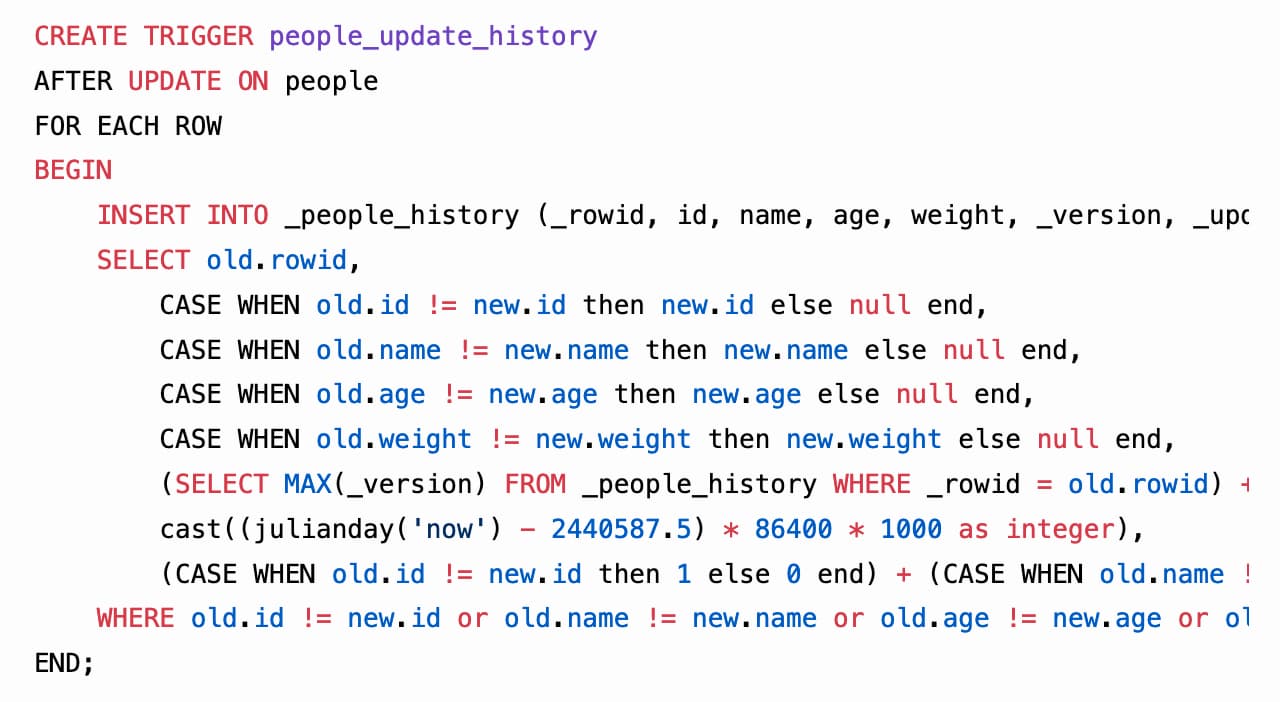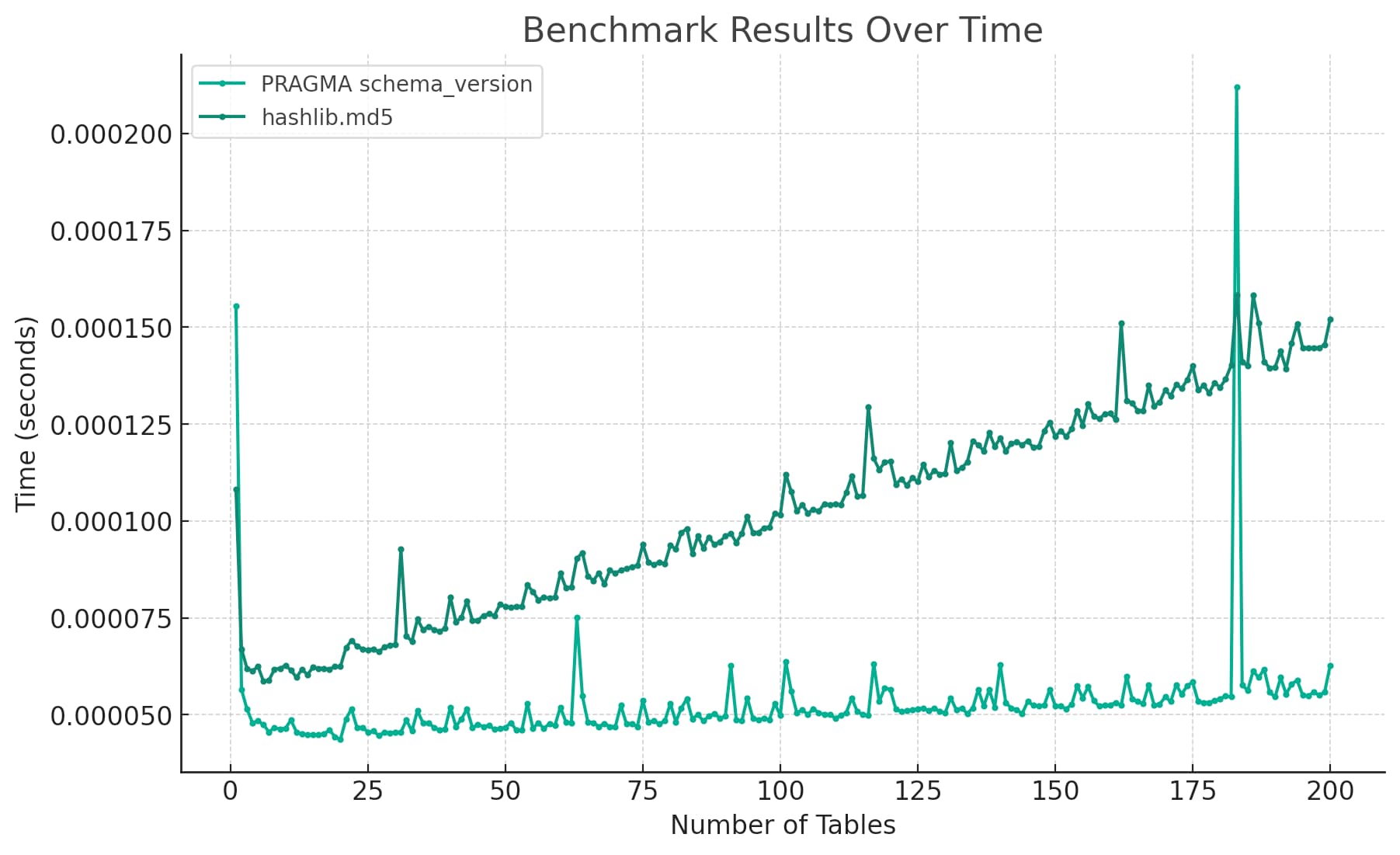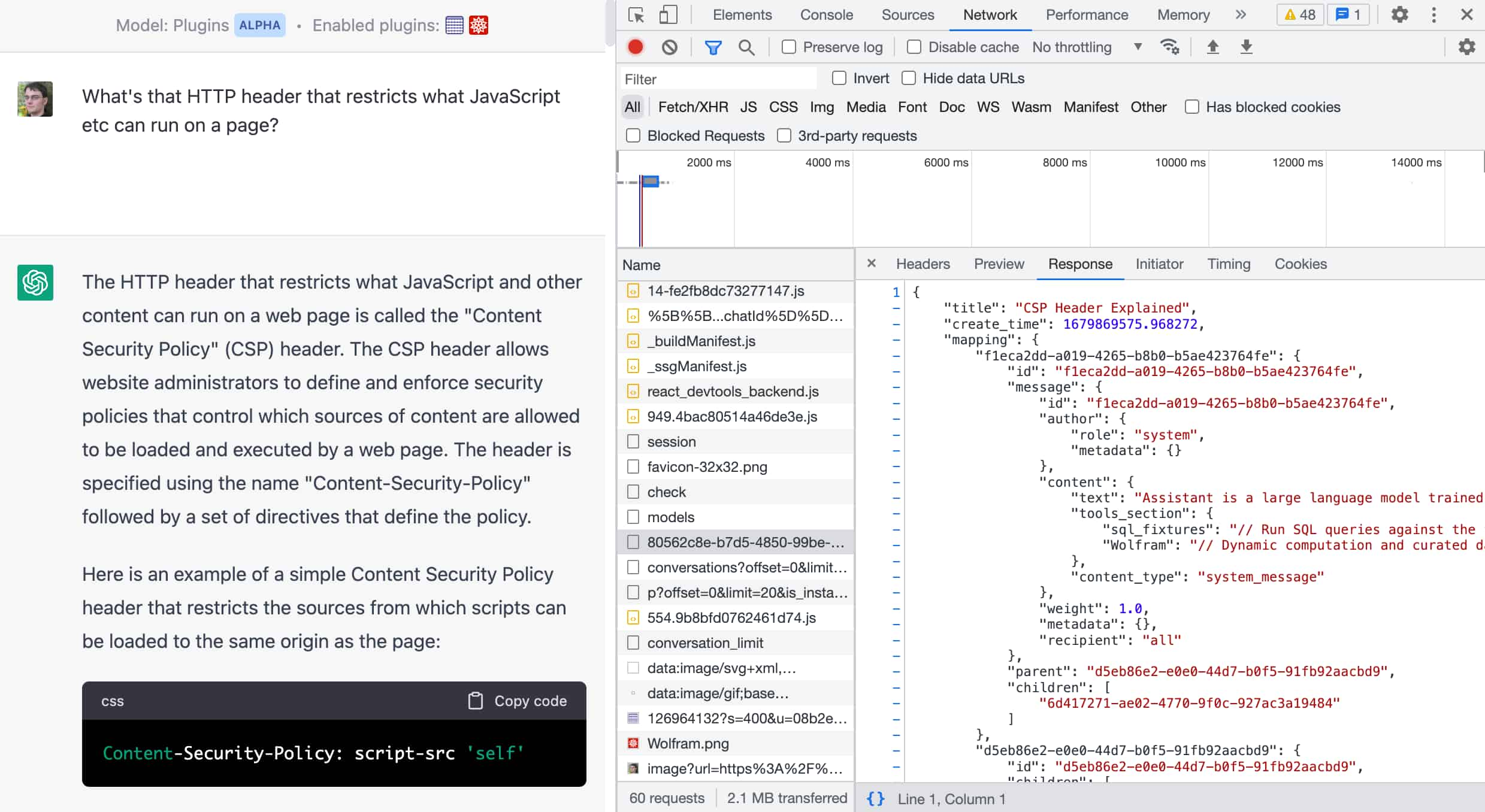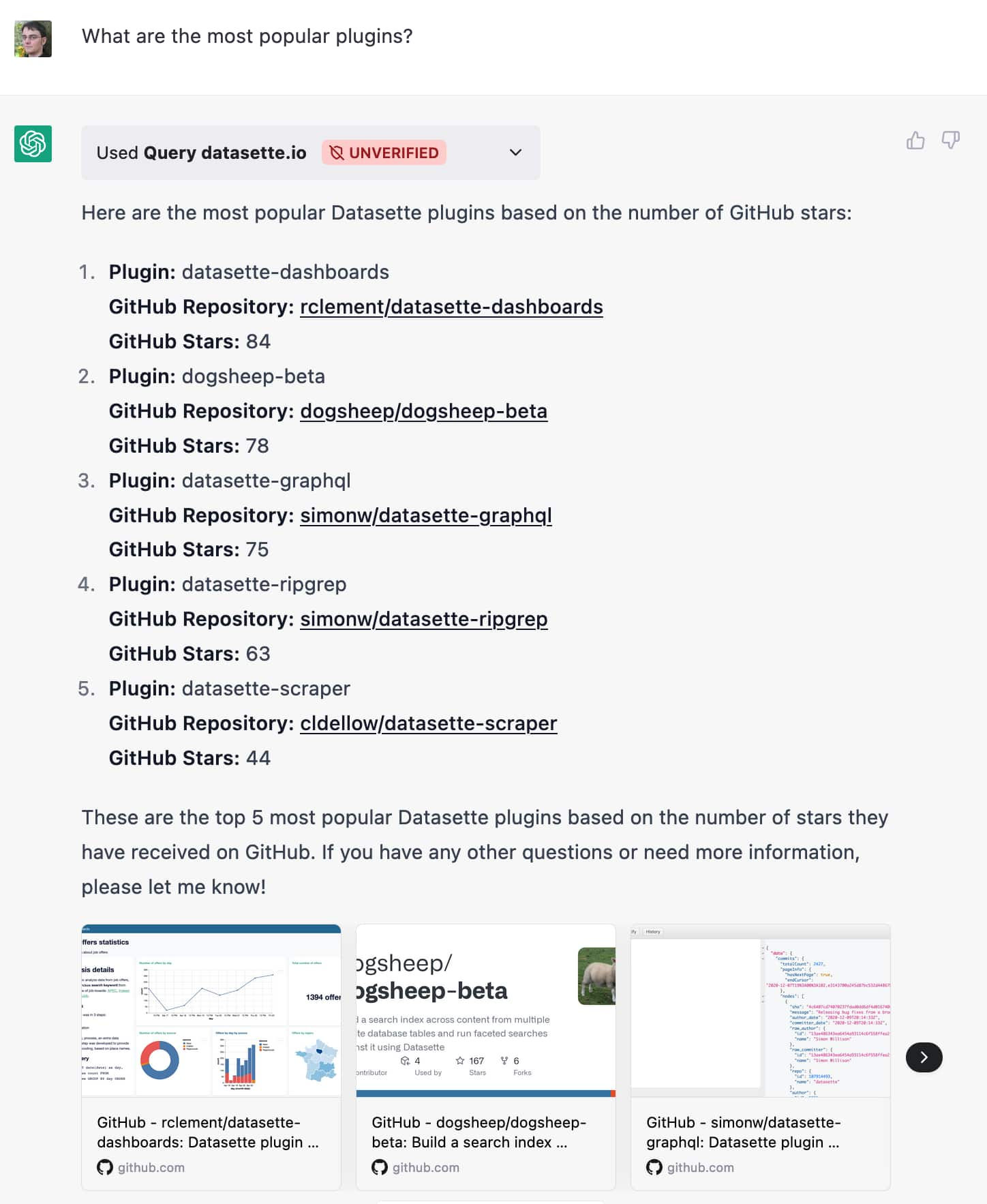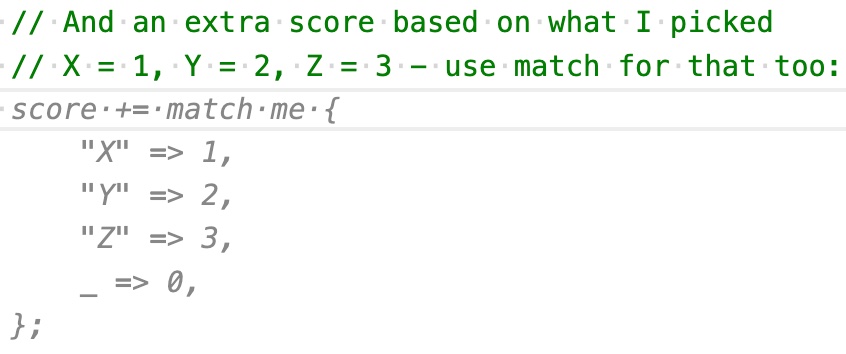30 items tagged “ai-assisted-programming”
Using AI tools such as Large Language Models to help write code.
2024
Image resize and quality comparison. Another tiny tool I built with Claude 3.5 Sonnet and Artifacts. This one lets you select an image (or drag-drop one onto an area) and then displays that same image as a JPEG at 1, 0.9, 0.7, 0.5, 0.3 quality settings, then again but with at half the width. Each image shows its size in KB and can be downloaded directly from the page.
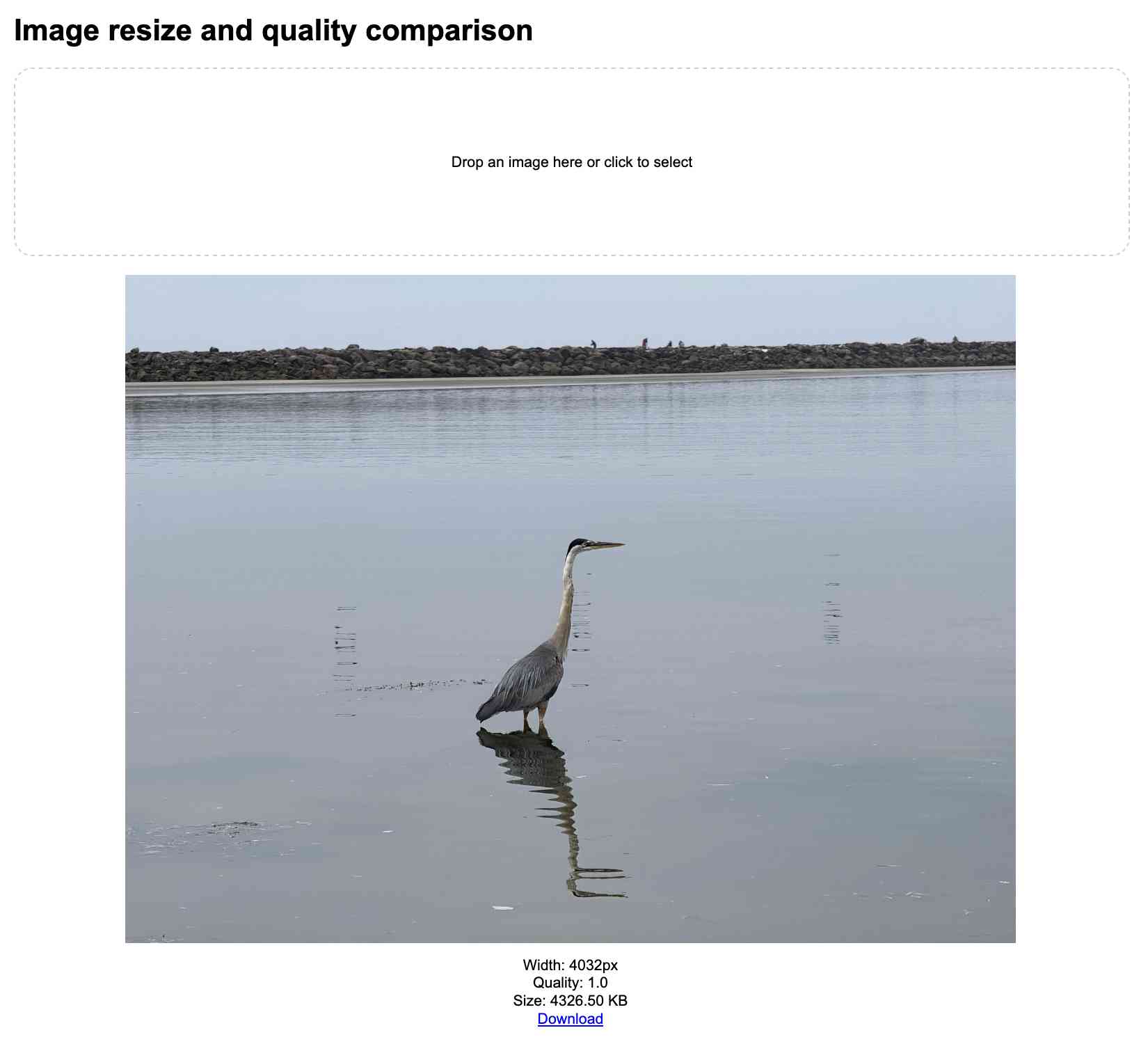
I'm trying to use more images on my blog (example 1, example 2) and I like to reduce their file size and quality while keeping them legible.
The prompt sequence I used for this was:
Build an artifact (no React) that I can drop an image onto and it presents that image resized to different JPEG quality levels, each with a download link
Claude produced this initial artifact. I followed up with:
change it so that for any image it provides it in the following:
- original width, full quality
- original width, 0.9 quality
- original width, 0.7 quality
- original width, 0.5 quality
- original width, 0.3 quality
- half width - same array of qualities
For each image clicking it should toggle its display to full width and then back to max-width of 80%
Images should show their size in KB
Claude produced this v2.
I tweaked it a tiny bit (modifying how full-width images are displayed) - the final source code is available here. I'm hosting it on my own site which means the Download links work correctly - when hosted on claude.site Claude's CSP headers prevent those from functioning.
AI Tooling for Software Engineers in 2024. Gergely Orosz reports back on the survey he ran of 211 tech professionals concerning their use of generative AI. One interesting result:
The responses reveal that as many professionals are using both ChatGPT and GitHub Copilot as all other tools combined!
I agree with Gergely's conclusion:
We’re in the midst of a significant tooling change, with AI-augmented software engineering becoming widespread across tech. Basically, these tools have too many upsides for developers to ignore them: it’s easier and faster to switch between stacks, easier to get started on projects, and simpler to become productive in unfamiliar codebases. Of course there are also downsides, but being aware of them means they can be mitigated.
The Death of the Junior Developer (via) Steve Yegge's speculative take on the impact LLM-assisted coding could have on software careers.
Steve works on Cody, an AI programming assistant, so he's hardly an unbiased source of information. Nevertheless, his collection of anecdotes here matches what I've been seeing myself.
Steve coins the term here CHOP, for Chat Oriented Programming, where the majority of code is typed by an LLM that is directed by a programmer. Steve describes it as "coding via iterative prompt refinement", and argues that the models only recently got good enough to support this style with GPT-4o, Gemini Pro and Claude 3 Opus.
I've been experimenting with this approach myself on a few small projects (see this Claude example) and it really is a surprisingly effective way to work.
Also included: a story about how GPT-4o produced a bewitchingly tempting proposal with long-term damaging effects that only a senior engineer with deep understanding of the problem space could catch!
I'm in strong agreement with this thought on the skills that are becoming most important:
Everyone will need to get a lot more serious about testing and reviewing code.
Claude: You can now publish, share, and remix artifacts. Artifacts is the feature Anthropic released a few weeks ago to accompany Claude 3.5 Sonnet, allowing Claude to create interactive HTML+JavaScript tools in response to prompts.
This morning they added the ability to make those artifacts public and share links to them, which makes them even more useful!
Here's my box shadow playground from the other day, and an example page I requested demonstrating the Milligram CSS framework - Artifacts can load most code that is available via cdnjs so they're great for quickly trying out new libraries.
hangout_services/thunk.js
(via)
It turns out Google Chrome (via Chromium) includes a default extension which makes extra services available to code running on the *.google.com domains - tweeted about today by Luca Casonato, but the code has been there in the public repo since October 2013 as far as I can tell.
It looks like it's a way to let Google Hangouts (or presumably its modern predecessors) get additional information from the browser, including the current load on the user's CPU. Update: On Hacker News a Googler confirms that the Google Meet "troubleshooting" feature uses this to review CPU utilization.
I got GPT-4o to help me figure out how to trigger it (I tried Claude 3.5 Sonnet first but it refused, saying "Doing so could potentially violate terms of service or raise security and privacy concerns"). Paste the following into your Chrome DevTools console on any Google site to see the result:
chrome.runtime.sendMessage(
"nkeimhogjdpnpccoofpliimaahmaaome",
{ method: "cpu.getInfo" },
(response) => {
console.log(JSON.stringify(response, null, 2));
},
);
I get back a response that starts like this:
{
"value": {
"archName": "arm64",
"features": [],
"modelName": "Apple M2 Max",
"numOfProcessors": 12,
"processors": [
{
"usage": {
"idle": 26890137,
"kernel": 5271531,
"total": 42525857,
"user": 10364189
}
}, ...
The code doesn't do anything on non-Google domains.
Luca says this - I'm inclined to agree:
This is interesting because it is a clear violation of the idea that browser vendors should not give preference to their websites over anyone elses.
Box shadow CSS generator (via) Another example of a tiny personal tool I built using Claude 3.5 Sonnet and artifacts. In this case my prompt was:
CSS for a slight box shadow, build me a tool that helps me twiddle settings and preview them and copy and paste out the CSS
I changed my mind half way through typing the prompt and asked it for a custom tool, and it built me this!
Here's the full transcript - in a follow-up prompt I asked for help deploying it and it rewrote the tool to use <script type="text/babel"> and the babel-standalone library to add React JSX support directly in the browser - a bit of a hefty dependency (387KB compressed / 2.79MB total) but I think acceptable for this kind of one-off tool.
Being able to knock out tiny custom tools like this on a whim is a really interesting new capability. It's also a lot of fun!
Home-Cooked Software and Barefoot Developers. I really enjoyed this talk by Maggie Appleton from this year's Local-first Conference in Berlin.
For the last ~year I've been keeping a close eye on how language models capabilities meaningfully change the speed, ease, and accessibility of software development. The slightly bold theory I put forward in this talk is that we're on a verge of a golden age of local, home-cooked software and a new kind of developer – what I've called the barefoot developer.
It's a great talk, and the design of the slides is outstanding.
It reminded me of Robin Sloan's An app can be a home-cooked meal, which Maggie references in the talk. Also relevant: this delightful recent Hacker News thread, Ask HN: Is there any software you only made for your own use but nobody else?
My favourite version of our weird new LLM future is one where the pool of people who can use computers to automate things in their life is massively expanded.
The other videos from the conference are worth checking out too.
Chrome Prompt Playground.
Google Chrome Canary is currently shipping an experimental on-device LLM, in the form of Gemini Nano. You can access it via the new window.ai API, after first enabling the "Prompt API for Gemini Nano" experiment in chrome://flags (and then waiting an indeterminate amount of time for the ~1.7GB model file to download - I eventually spotted it in ~/Library/Application Support/Google/Chrome Canary/OptGuideOnDeviceModel).
I got Claude 3.5 Sonnet to build me this playground interface for experimenting with the model. You can execute prompts, stream the responses and all previous prompts and responses are stored in localStorage.
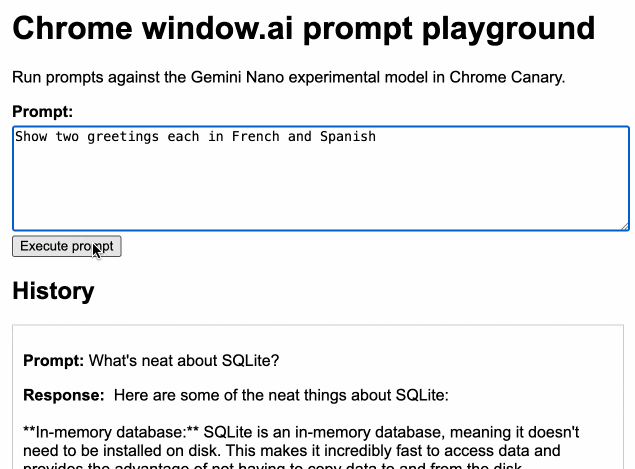
Here's the full Sonnet transcript, and the final source code for the app.
The best documentation I've found for the new API is is explainers-by-googlers/prompt-api on GitHub.
Compare PDFs. Inspired by this thread on Hacker News about the C++ diff-pdf tool I decided to see what it would take to produce a web-based PDF diff visualization tool using Claude 3.5 Sonnet.
It took two prompts:
Build a tool where I can drag and drop on two PDF files and it uses PDF.js to turn each of their pages into canvas elements and then displays those pages side by side with a third image that highlights any differences between them, if any differences exist
That give me a React app that didn't quite work, so I followed-up with this:
rewrite that code to not use React at all
Which gave me a working tool! You can see the full Claude transcript in this Gist. Here's a screenshot of the tool in action:
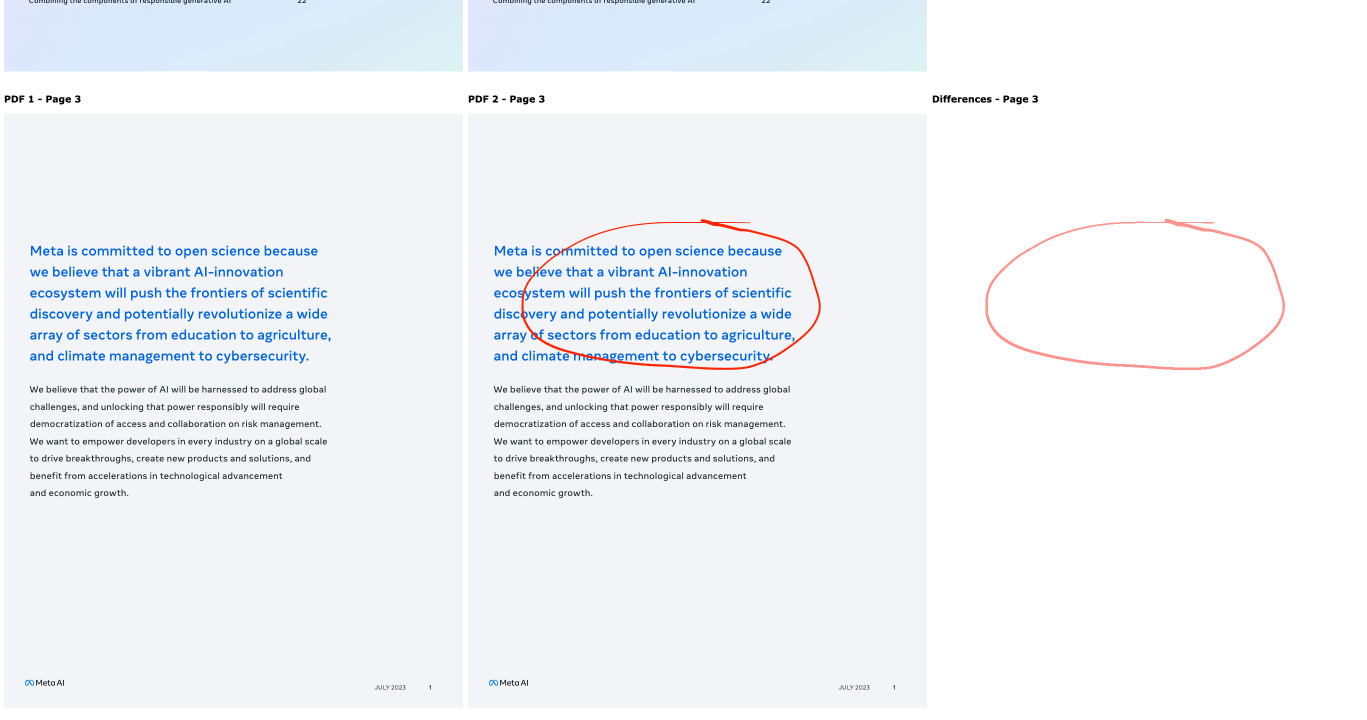
Being able to knock out little custom interactive web tools like this in a couple of minutes is so much fun.
[on GitHub Copilot] It’s like insisting to walk when you can take a bike. It gets the hard things wrong but all the easy things right, very helpful and much faster. You have to learn what it can and can’t do.
A solid pattern to build LLM Applications (feat. Claude) (via) Hrishi Olickel is one of my favourite prompt whisperers. In this YouTube video he walks through his process for building quick interactive applications with the assistance of Claude 3, spinning up an app that analyzes his meeting transcripts to extract participants and mentioned organisations, then presents a UI for exploring the results built with Next.js and shadcn/ui.
An interesting tip I got from this: use the weakest, not the strongest models to iterate on your prompts. If you figure out patterns that work well with Claude 3 Haiku they will have a significantly lower error rate with Sonnet or Opus. The speed of the weaker models also means you can iterate much faster, and worry less about the cost of your experiments.
Building files-to-prompt entirely using Claude 3 Opus
files-to-prompt is a new tool I built to help me pipe several files at once into prompts to LLMs such as Claude and GPT-4.
[... 3,235 words]The lifecycle of a code AI completion (via) Philipp Spiess provides a deep dive into how Sourcegraph's Cody code completion assistant works. Lots of fascinating details in here:
"One interesting learning was that if a user is willing to wait longer for a multi-line request, it usually is worth it to increase latency slightly in favor of quality. For our production setup this means we use a more complex language model for multi-line completions than we do for single-line completions."
This article is from October 2023 and talks about Claude Instant. The code for Cody is open source so I checked to see if they have switched to Haiku yet and found a commit from March 25th that adds Haiku as an A/B test.
Running OCR against PDFs and images directly in your browser
I attended the Story Discovery At Scale data journalism conference at Stanford this week. One of the perennial hot topics at any journalism conference concerns data extraction: how can we best get data out of PDFs and images?
[... 2,263 words]Wrap text at specified width. New Observable notebook. I built this with the help of Claude 3 Opus—it’s a text wrapping tool which lets you set the width and also lets you optionally add a four space indent.
The four space indent is handy for posting on forums such as Hacker News that treat a four space indent as a code block.
llm cmd undo last git commit—a new plugin for LLM
I just released a neat new plugin for my LLM command-line tool: llm-cmd. It lets you run a command to to generate a further terminal command, review and edit that command, then hit <enter> to execute it or <ctrl-c> to cancel.
Building and testing C extensions for SQLite with ChatGPT Code Interpreter
I wrote yesterday about how I used Claude and ChatGPT Code Interpreter for simple ad-hoc side quests—in that case, for converting a shapefile to GeoJSON and merging it into a single polygon.
[... 4,612 words]Claude and ChatGPT for ad-hoc sidequests
Here is a short, illustrative example of one of the ways in which I use Claude and ChatGPT on a daily basis.
[... 1,754 words]2023
How I make annotated presentations
Giving a talk is a lot of work. I go by a rule of thumb I learned from Damian Conway: a minimum of ten hours of preparation for every one hour spent on stage.
[... 2,128 words]download-esm: a tool for downloading ECMAScript modules
I’ve built a new CLI tool, download-esm, which takes the name of an npm package and will attempt to download the ECMAScript module version of that package, plus all of its dependencies, directly from the jsDelivr CDN—and then rewrite all of the import statements to point to those local copies.
[... 1,240 words]What’s in the RedPajama-Data-1T LLM training set
RedPajama is “a project to create leading open-source models, starts by reproducing LLaMA training dataset of over 1.2 trillion tokens”. It’s a collaboration between Together, Ontocord.ai, ETH DS3Lab, Stanford CRFM, Hazy Research, and MILA Québec AI Institute.
[... 1,077 words]sqlite-history: tracking changes to SQLite tables using triggers (also weeknotes)
In between blogging about ChatGPT rhetoric, micro-benchmarking with ChatGPT Code Interpreter and Why prompt injection is an even bigger problem now I managed to ship the beginnings of a new project: sqlite-history.
[... 1,680 words]Running Python micro-benchmarks using the ChatGPT Code Interpreter alpha
Today I wanted to understand the performance difference between two Python implementations of a mechanism to detect changes to a SQLite database schema. I rendered the difference between the two as this chart:
[... 2,939 words]The Changelog podcast: LLMs break the internet
I’m the guest on the latest episode of The Changelog podcast: LLMs break the internet. It’s a follow-up to the episode we recorded six months ago about Stable Diffusion.
[... 454 words][On AI-assisted programming] I feel like I got a small army of competent hackers to both do my bidding and to teach me as I go. It's just pure delight and magic.
It's riding a bike downhill and playing with legos and having a great coach and finishing a project all at once.
image-to-jpeg (via) I built a little JavaScript app that accepts an image, then displays that image as a JPEG with a slider to control the quality setting, plus a copy and paste textarea to copy out that image with a data-uri. I didn’t actually write a single line of code for this: I got ChatGPT/GPT-4 to generate the entire thing with some prompts (transcript in the via link).
AI-enhanced development makes me more ambitious with my projects
The thing I’m most excited about in our weird new AI-enhanced reality is the way it allows me to be more ambitious with my projects.
[... 3,334 words]I built a ChatGPT plugin to answer questions about data hosted in Datasette
Yesterday OpenAI announced support for ChatGPT plugins. It’s now possible to teach ChatGPT how to make calls out to external APIs and use the responses to help generate further answers in the current conversation.
[... 1,801 words]2022
Over-engineering Secret Santa with Python cryptography and Datasette
We’re doing a family Secret Santa this year, and we needed a way to randomly assign people to each other without anyone knowing who was assigned to who.
[... 2,044 words]AI assisted learning: Learning Rust with ChatGPT, Copilot and Advent of Code
I’m using this year’s Advent of Code to learn Rust—with the assistance of GitHub Copilot and OpenAI’s new ChatGPT.
[... 2,661 words]